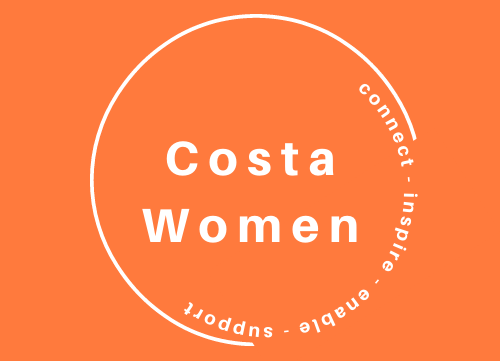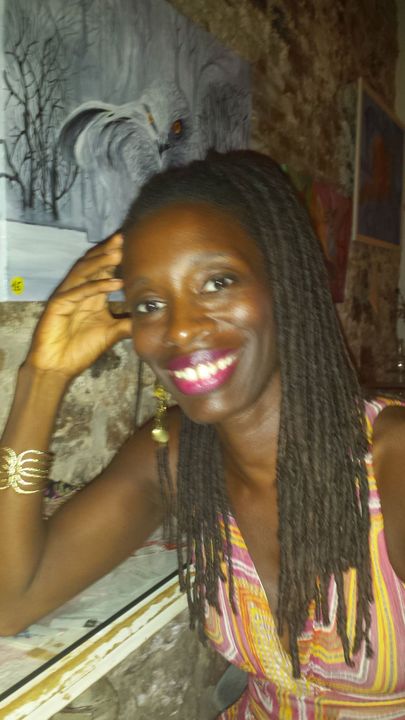Hawah Nyambay Bunduka founded Bunduka Consulting to work with communities, projects and organisations to facilitate positive changes in fragile and conflict-affected communities through women’s rights, community development, active citizenship and peacebuilding. Hawah works primarily in sub-Saharan Africa as a facilitator and trainer to enable the voices of marginalised and vulnerable communities to be heard. She also brings music to life through dance!
Hello Hawah – how did you end up living in Spain?
My son is half Spanish; his father and I wanted him to experience that aspect of his culture and heritage. I was eager to explore my creative side after over 15 years of living and working internationally and working in post-conflict countries. It seemed that Spain offered a different pace of life with time and space to reflect more on my purpose and dreams.
Where do you live in Spain and why should we move there too?
Cartagena, Murcia. It’s a great place for nature lovers (sea, mountain hikes), young families and older people that like a calm pace of life and an affordable cost of living.
There are a couple of really good international music festivals (La Mar de Musica and the San Javier Jazz festival)
For people that want to integrate and become a true part of Spanish life, there are loads of interesting fiestas and cultural events.
And before Spain you were…
I had spent six years living back in my home city London and doing consulting and training work, mainly in sub-Saharan Africa to make sure that project and programmes run by governments, NGOs and development banks addressed the needs and issues of the most vulnerable members of society. I had my first child in 2011 and so was busy with getting to know my son and l cutting my teeth as a new mum.
Along with my brother, we were caring for my mum in the last years of her amazing life.
I was also doing dance outreach in schools for the London School of Samba, taking part in Notting Hill carnival and performing with African and Brazilian dance in the groups I was involved with. It was a really busy time!
Your video brought a smile to my face! How did you start dancing and why?
Dance has always been a part of my life. I’m London born and bred and my heritage is Sierra Leonean. In Sierra Leonean culture, dance is an essential part of daily life and special occasions. I remember my mum dropping us a few coins if we danced along to Top of the Pops, when I was tiny, I remember her dancing in the kitchen when cooking. Music and dance and it’s relationship to weddings, funerals, parties and rites of passage is like second nature to me. I love dancing because of its expressive and liberating nature; it lifts the spirit and comes from the soul.
How do you feel your business life of social inclusion and capacity building fit with your dancing?
My working life is about helping people to reach their full potential in spite of challenging and difficult issues and circumstances. Dance is a great leveler and instrument for this because it says what words cannot and allows people to stretch themselves beyond that they thought was possible for them. My dream is to use the transformational, commununity-building and healing power of dance intentionally as an instrument for social inclusion, resilience and peace.
Do you think living overseas has increased your awareness of social inclusion? If so how?
I’ve lived in different countries in Africa, Europe and the US and the social exclusion of some people has been really obvious (e.g post Apartheid South Africa) and much more subtle (e.g. urban New York City). Since it’s my area of work, I’m always keenly aware of who the socially excluded communities/groups are. As Black British-Sierra Leonean woman now living in rural/provincial Spain, I’m also quite aware of the attitudes and debates around migration particularly from Africa. It’s been really interesting to follow debates on social media, in conversations and in the national media. While people of colour are often synonymous with immigrants/refugees here – with all the connotations that has – expatriates appear to be viewed quite differently. Fortunately, there are some Spanish groups/movements doing great work to challenge racism, xenophobia and sexism in Spain.
Who do you wish you could have in your dance class and why?
My classes are open to all! I would love to see more men in my classes. Were he still alive, I’d love Prince to come to my dance class; he’s my musical hero and a pretty wicked dancer! I love it when I have older women in my class. The dances I teach are social and cultural and are danced by all the generations in their normal setting. I’m also a big advocate of body positivity as in Sierra Leonean culture there isn’t the same hang up on being ultra-thin or slim as in there is in much of Western Europe. Ultimately, I’m always happy when people who don’t see themselves as having a ‘dancer’s body’ turn up and TURN IT OUT!
What has been your greatest challenge, whether personal or business?
My greatest challenge has been to allow the process of having a more creative life to unfold. There is a lot more uncertainty involved in this path, but I’m clear on where my talents and purpose are and I always follow my heart.
What business book are you currently reading and what top tip you have learnt?
I stopped reading business books many years ago! My best tip for myself is the tune into and follow that inner voice. This comes once you are clear about your purpose, talents and intentions in your business (and indeed in all aspects of your life).
Do you live to dance, or dance to live?
That’s a tough one! Dance is a vehicle to express and explore what’s happening in my life, but it also gives me the energy and vibe I need to fulfil what I want and need in life. The relationship is reciprocal and always expanding me into new directions, new ideas and new ways of being.
Which song gets you up and dancing?
At the moment You Are Everything by Louie Vega and Jocelyn Brown is my jam.
It’s a house track with a strong gospel influence. The reason I love it is because I feel it celebrates the Divine in each and every one of us! It’s impossible not to feel uplifted when I hear this song.
Something you will achieve over the summer?
I will have a lot of quality time with my family and friends in the UK and US. I’ll be refreshing my dance skills as I’ll be doing the music festivals over the summer. I’m also hoping to do some more dance workshops and intensives in new parts of Spain….let’s see what unfolds.
Thank you Hawah!

